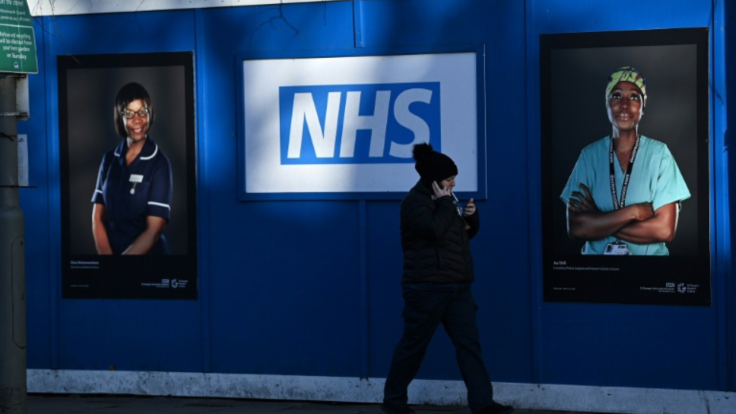Women's Healthcare 'Stuck in the Nineties': £36 Billion Gender Gap and 600,000 Left Waiting for NHS Treatment
Critics urge faster action on the Women's Health Strategy to tackle chronic underfunding and decades-long gender health gaps

The UK's healthcare system is facing mounting criticism over how it serves women, as new data reveals that more than 600,000 are waiting for gynaecological treatment on the NHS.
England's Women's Health Ambassador, Dame Lesley Regan, has described women's healthcare as 'stuck in the nineties', citing outdated systems, chronic underinvestment and slow reform. The warning comes amid record waiting lists and widening inequalities in diagnosis and treatment across the country.
The delays are also taking a heavy economic toll. Regan has cited estimates suggesting that women's health inequalities cost the UK economy around £36 billion each year through lost productivity and women leaving the workforce because of untreated or poorly managed conditions.
Women Hit Hardest by NHS Waiting Lists
According to parliamentary data, nearly 600,000 women in England are currently awaiting gynaecological treatment — an increase of about one-third in the past two years. As of December 2024, there were 586,000 incomplete NHS gynaecology pathways, and almost half of those patients had been waiting beyond the 18-week target.
NHS England figures show that women account for 57 per cent of all patients on recorded waiting lists, compared with 43 per cent for men. The impact is particularly severe for conditions such as endometriosis, where the average time to diagnosis is now close to nine years.
Health experts warn that such delays are worsening outcomes and deepening inequalities. Many women are turning to private clinics to access treatment sooner, adding financial pressure to medical distress. The consequences go beyond individual health as they extend to the wider economy.
A £36 Billion Gender Health Gap
Speaking at the Women's Health Week Europe conference in London, Dame Regan said women had been 'let down' by years of underinvestment and bureaucratic barriers that have slowed access to new treatments and technology. She highlighted research showing that the gender health gap costs the economy about £36 billion a year through lost working days, early retirement and reduced productivity, according to The Times.
Experts say systemic factors are largely to blame. When hospitals face pressure, gynaecology and women-specific services are often the first to be deprioritised, while research into menopause, endometriosis and menstrual disorders remains chronically underfunded. Clinics across the NHS report rising demand and staff shortages, stretching waiting times even further.
The NHS hates women so much they can't say the word women in our health Comms messages,Has anyone else seen other institutions who have deleted the word woman? The fact the NHS can't collect data on sex, suspect the numbers aren't correct below
— justsaymother (@justsay_mother) October 19, 2025
Your thoughts? #WorldMenopauseday pic.twitter.com/2z5sxnB2af
Meagan-Blake, 42, lives with Fibroids, Polycystic Ovary Syndrome (PCOS), Adenomyosis and Endometriosis.
— Sinai Fleary 🇬🇩🇻🇨 (@S_Fleary1) October 18, 2025
She’s had to change her GP FOUR times because her concerns were “dismissed.”https://t.co/mJBiJzdGdQ
Endometriosis affect 25% of women uk population. Officially, it’s only 10% What happens to the remaining 15% undiagnosed & untreated? Death? Direct & indirect killing of women/moters/girls for decades. # cancer awareness # women health
— Anne Freedman (@AnneFreedman2) September 19, 2025
There's a lot of important discussion about menopause and peri-menopause at the moment.
— tern (@1goodtern) October 20, 2025
No one seems to be looking at the actual data.
Here's the stark data on the number of *hospital episodes* over the last dozen years. pic.twitter.com/CcXVg99sHz
Growing Costs
Charities and campaigners warn that untreated period pain, menopause symptoms and fertility issues have both personal and national consequences. Severe period pain alone is estimated to cost the UK £3.7 billion a year in lost working days, according to the NHS Confederation.
The government's Women's Health Strategy promises new health hubs, better diagnostics and investment in women's health technology. However, critics say progress has been slow, with limited funding and uneven rollout across England.
Future Reforms
Proposed changes include prioritising women's health specialties within NHS workforce planning, embedding gender-sensitive diagnostics, and expanding research into women's conditions to bring them into the mainstream of clinical funding and training.
Women's healthcare in the UK continues to be held back by years of inertia and chronic underinvestment. With hundreds of thousands still waiting for treatment and billions lost to the economy, calls for tangible reform are growing louder. Whether this latest round of commitments leads to lasting change will be a key test for a health system under pressure to deliver for the 51 per cent it serves.
© Copyright IBTimes 2025. All rights reserved.




















